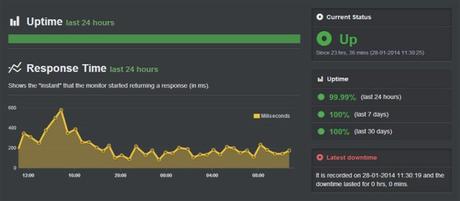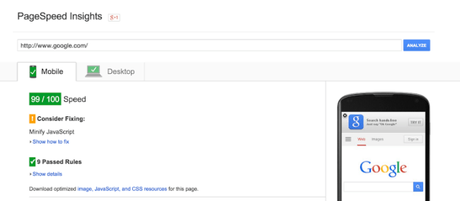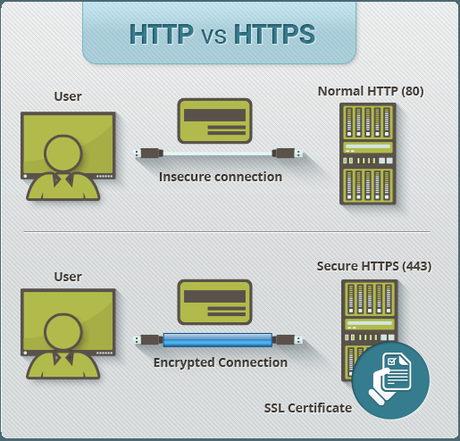With all the ruckus everywhere about SEO, it's hard to imagine that there are still people out of the loop. With numerous articles and pieces describing the importance of SEO in everything from billion-dollar firms to your nephew's lemonade stand, people have started researching what makes or breaks SEO.

One of said factors is web hosting. Worried that they'll end up on the dreaded second page of Google's search results, concerned business owners have revealed which issues with their web hosting caused the most issues with the notorious Hummingbird algorithm.
Uptime / Downtime
When choosing a host, one of the key things to look out for is server downtime. Simply put, search engines will attempt to reach your site several times a day, if the site is down to whatever reasons, they mark it down and move on to the next in line. This doesn't seem too harsh, but if it keeps happening, a website might get flagged as unreliable which could severely cripple its appearance in the top tiers of search results. Simply put, do not accept any deal that does not guarantee at least 99.9% uptime.

However secure you might feel, it's common practice to monitor your investment. After all, with all the money that went into setting up this package, you need to make sure you're getting what you signed up for. There are various tools, both free and premium, that essentially monitor your site over a set amount of time, regularly pinging your site and checking if it is indeed up and running. This way you can put your conscience to rest as well as have evidence should your site experience an increased amount of downtime.
Source: https://hostingfacts.com/wp-content/uploads/2016/03/uptime_robot.jpg
Speed
Another key ingredient to the SEO pie we're all so eager to carve up is accessibility. And by accessibility, we mean speed. According to Google, the speed at which a site loads directly influence the ranking of a page in search results. This is why choosing a cheaper option and longer load times can impact a company's visibility in the grand scheme of things. Keep in mind that these problems can be easily solved by migrating to a less busy server, basically eliminating a nuisance right off the bat.

Another thing to look out for is the details of the hosting package you're being offered. A very obvious choice is to make sure that the drive being used is a solid state drive a.k.a. an SSD. Apart from that, it is vital to make sure that your server will receive dedicated resources, avoid shared plans because it allows other sites to tap into your resources under heavy load. To that end, when choosing a package, focus on getting the most resources for your investment, similarly like computer processor - the more resources you have - the faster your site will function.
Source: https://i0.wp.com/www.marketgoo.com/wp-content/uploads/2016/01/Screen-Shot-2016-01-26-at-17.23.56.png?w=727&ssl=1
Location
Search engines basically access everything about the site in order to determine its compatibility with the search query. One of the things it focuses on is the server location. For example, if a person from the United States searches for diners, Google will automatically pair him up with sites located in the USA.
A server's IP determines a site's location, which is why opting for the right server is important. Choosing a local server boosts local SEO ranking substantially, it is worth noting, however, that it also lowers global visibility to some extent.
Another thing worth mentioning is that location directly influences load times to some extent, just take into consideration that despite its speed, the internet still requires time to get things done. We've all experienced the delays and tedious load times when attempting to reach sites based on the other side of the globe. Response time is crucial not only for SEO ranking but also customer retention.
Why? People don't have time to wait unless it's something really important - a long load time will make a large number of visitors lose interest and simply opt for another option.
https://www.youtube.com/watch?v=keIzr3eWK8I (Can the geographic location of a web server affect SEO? - Matt Cuts)
Security
Internet security is something that is mandatory, no buts, no ifs. With threats around every corner, a good host will keep customers covered and provide tools to protect them from such attacks. Simply put, if a search engine deems your site insecure, it will not display you as a viable search result or it'll just bury you fifty pages back. Regular malware checks are mandatory. Google has even noted that sites with HTTPS will get a visibility boost, making security an even greater concern.

Apart from malware checks, two other very important factors play a role in both your SEO ranking and the safety of any clients. The first being any type of spam mitigation tool that helps phase out the meaningless noise from actual clientele. The second is the hashing and safe storage of user passwords.
Without these, a company would first get swarmed with spam, and then get kneecapped if client accounts ever got broken into. Never mind the SEO rating plummet, the real damage comes from all the personal information that went public, information that you were responsible for. Things like this can kill a business.
Source: https://www.instantssl.com/images/http-vs-https.png
Shared hosting
A big no-no in the industry, shared hosting is simply the bargain option that ends up getting picked out necessity more than want. Google finds shared hosting a huge turn off as it goes directly against SEO. These shared hosting providers even cater to spammers, dragging down the rest of the users' rankings with it.
Think of it as moving into a bad neighborhood, as the offenses rack up, the real estate value plummets. Shared hosting also presents a real danger of having data stolen or the entirety of the website getting compromised, making these bargains a literal toss of the die.

If shared hosting does turn out to be your best bet, then a thorough look at the various options out there is a necessity. A plethora of sites offer reviews on everything from toothbrush bristle width to 3D printers, so the answers are out there, it's just a question of where to look. A very nice way to find opinionated content is to rummage through social media and forums, so before investing your hard-earned money into a
Also, read:
A very nice way to find opinionated content is to rummage through social media and forums, so before investing your hard-earned money into a web hosting service, try looking it up on i.e. Twitter. If Twitter's not your thing, there are loads of forums out there that have entire threads dedicated to a singular hosting service.
Geo-Targeting
This option directly ties into the location problem mentioned above, this is a nifty option that helps your site target the relevant audiences. When faced with a global domain (.com), geo-targeting comes into play.

It essentially gives users the option to identify the country they're focusing on, as opposed to letting Google track the IP address of the server (which can cause problems later on). This might not seem like much, but this is essentially the choice of the target audience for whatever the site is advertising; choosing what to show to people, and, more importantly, to who.
Yes, it does
All in all, choosing a sketchy host is always a gamble. With business in mind, saving a couple of bucks up front will cause major headaches in the long run. In today's world, internet presence can launch businesses to new heights, but just as easily tank the entire thing. A reputable host will cost more but offers security and assurance that your site will be given a fair chance of making it in that dog-eat-dog world we call the internet.




